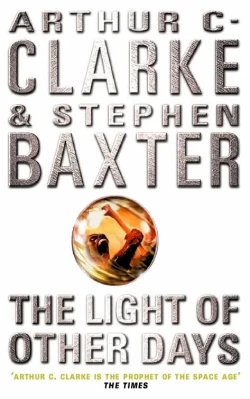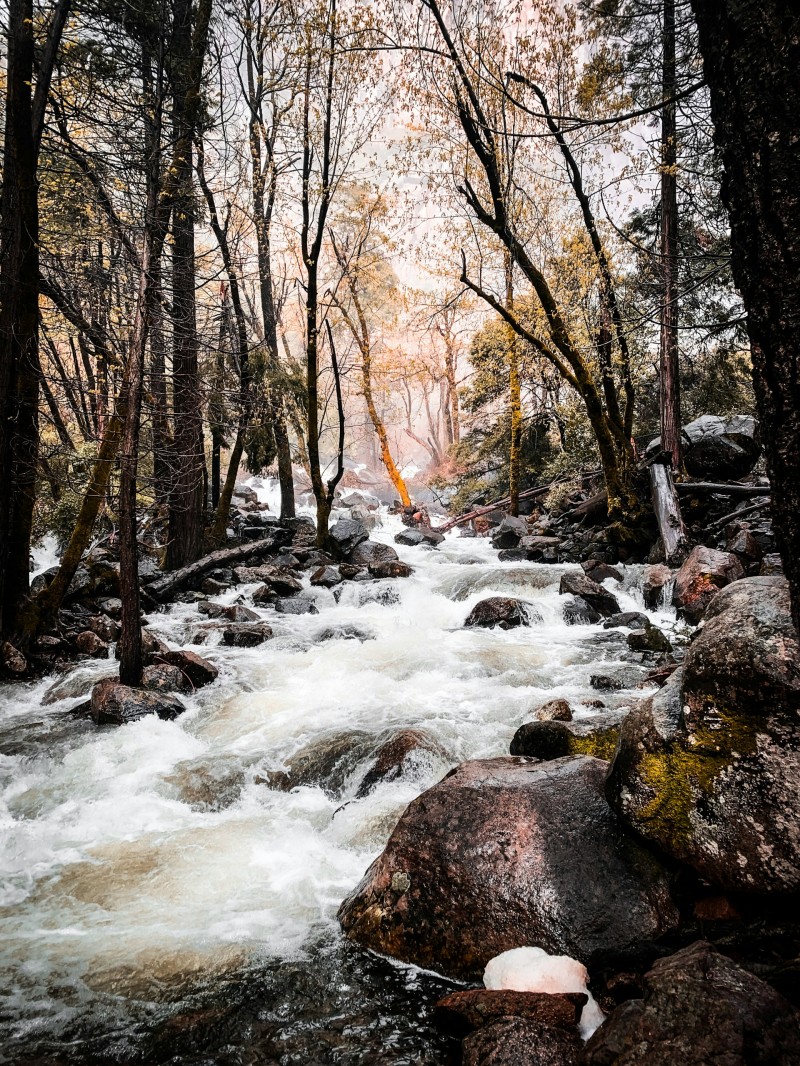They Made Us
Natural selection is the opposite of what it sounds
Marco Giancotti,

Marco Giancotti,
Cover image:
Photo by Shane Smith, Unsplash
Near the end of his life, Arthur C. Clarke co-authored a novel with Stephen Baxter titled The Light of Other Days. In it, a new technology was invented capable of creating atom-sized "wormhole cameras" at any point in space and time. The world-upending consequences of that invention, as imagined by the authors, were interesting enough in themselves. But there was one scene in particular that has remained vivid within me until now, two decades later: the scientists eventually adapt their WormCam technology to track one's DNA through the generations, capturing on video the smooth transitions from child to mother, from mother to grandmother, and so on backwards in time all the way, in one continuous sequence, to the very beginning of life.

Retracing one's ancestry like that may be a cliché, but back then it unlocked a new perspective for me. Some of those primordial single-celled organisms were my actual relatives! There was not a single interruption in the multi-billion-year-long chain of parents and children in the whole history of life leading up to me!
From this angle, it looks as if everything has been set up exactly as necessary so that I could be here today, typing these words.
It's as if you and I were the outcome of painstaking selection—perhaps natural selection.
There's something off with that statement, though. We know, through almost 200 years of scientific research, that evolution happens—thrives—in the random mixing of lineages, in the chance appearance of genetic transcription errors, in the unpredictable unfolding of local circumstances. There is no mind at work, no breeder picking the "good stock", worthy of survival, out from the mess of genetic mistakes. No ultimate goal to evolve towards (least of all... me).
So what's so special about the links in that unbroken chain of heredity, of which we're the latest? We say that all those grandmothers and grandfathers were "adapted" to their environment, and that they were "fitter" or "fittest" among their populations. But what do we really mean by that?
We must mean, I think, that they all lucked out.
The following is all mathematically true: none of your ancestors, before reproducing, ever got so far from food that they starved; none of them were targeted by predators in conditions too unfavorable; none were the victims of natural calamities deadly enough to kill them; none had their vital organs destroyed by enemy weapons; none had random genetic mutations bad enough to prevent them from becoming parents.
As obvious as all these points are, it's interesting that they are all negative statements. "Not being or doing something" is a weak way to categorize things. It's usually better and clearer to group things based on positive statements. I prefer saying "all my pens are black", rather than "none of my pens are red, blue, green, or any other color other than black". It's better to say "Poodles were bred by choosing the pups with the curliest hair", than "Poodles exist because none of their forebears looked too unlike an idealized Poodle".
But there's no positive way to describe ancestors, except for the tautology that they all survived because they survived.
Nevertheless, we talk about "natural selection", which makes it sound like there was something "selected for". Given the above, it seems that they were selected for staying out of harm's way long enough.
Imagine a big party buffet, overflowing with more food than the guests can hope to gobble up. Think about the individual food items lined up on the plates. Some are eaten, some are abandoned there, untouched. Which of the two groups would you say are "selected" by the crowd?

If you answered that the items that got eaten up were selected by the diners, you agree that natural selection is a flawed metaphor. By the logic of natural selection, the crowd "selects" the scraps that get left over by letting them continue existing.
In other words, when you put "natural" before it, the word "selection" undergoes a complete reversal of meaning.
It seems to me that a river might be a better metaphor for the evolutionary process. The water flow carries the thinner soil and the small pebbles away, and leaves the bigger boulders where they are. The boulders form rapids or stepping stones, while the smaller debris might pile up further downstream, reshaping the river's course or forming islets at the river delta.
Is the river selecting the boulders to make the scenery nicer? Or is it selecting the finer detritus to make those geographical changes? Because the river has no grand plan or purpose in its endless flow, that very question is meaningless.
The organisms who died out and have no descendants today—the vast majority of all organisms that ever existed—are not out of the equation or irrelevant for us. They may not have left surviving traces in the form of living things, but their past existence—even their premature deaths—affects today's world just as much as those who made it here alive, if not more.
Before dying childless, those extinct organisms killed and ate others, biasing the playing field. They were eaten by our ancestors, providing nourishment. By dying, they freed up resources, sometimes saving the lives of our ancestors. They even altered the structure of the environment, changing the conditions for survival of all others.
They deeply impacted the natural history of the Earth, every step of the way.
If we, the living beings, are ripples in the big pond we call Universe, then those that are no longer alive left ripples of another sort, harder to spot and draw boundaries around, perhaps, but just as consequential. Their ripples are—today, right now—propagating, mixing, interfering, resonating with all the other ripples we call "people", "organisms", and "things".
We weren't selected, but rather left behind. And they weren't eliminated: they made us. ●
Cover image:
Photo by Shane Smith, Unsplash
